Plastic Surgery in Turkiye: Why Turkiye has become a hotspot for global aesthetic tourism
Seeing men with reddened and swollen scalps and people with bandaged noses is nowadays common on the streets of Istanbul.
For tens of thousands of men worldwide, “going to Turkiye” has become synonymous with baldness treatment.
Flights from the Turkish city to Western Europe or the United States are often filled with blindfolded people who seek to avoid eye contact with other travelers.
Hyaluronic acid injections, botox treatments, and rhinoplasties are also popular interventions for tourists who want to change their appearance.
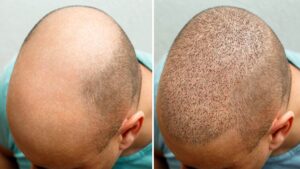
Plastic Surgery in Turkiye: one of the top ten destinations
Turkiye is one of the top ten destinations in the world when it comes to medical tourism. The city of Istanbul alone has 600 clinics registered, according to Patients Beyond Borders (PBB), an organization specializing in medical tourism.
According to local media, more than 100,000 people visit the country yearly for hair transplants alone, the vast majority coming from Arab countries.
Plastic Surgery in Turkiye: The importance of cost
According to experts, people can find quality service at affordable prices and be followed by surgeons and technicians who know their job well. For example, most clinics in the country will not only offer cosmetic surgery treatment. Still, they will provide global packages that can include flights, transfers from/to the airport, luxury accommodation solutions, regular medical follow-up care, and even city tours.
The industry of plastic surgery in Turkiye is not only about the surgery but also about meeting the client at the airport, accommodation, hotel booking, and professional follow-up until the first examination.
For the client, plastic surgery in Turkiye means that every aspect of the procedure is taken care of – he just needs to show up when the day comes.
Prices are another advantage: a Turkish hospital, for example, charges between $4,000 and $6,000 for hair transplantation, which is considered cheap. Others charge prices as low as just over $1,000, although inevitably, the quality of service varies widely. In comparison, in European countries, hair transplants, which are not reimbursed by social security, can cost 5,000 euros in the private sector.
Likewise, aesthetic rhinoplasties can cost up to 8,000 euros in European countries, not counting the cost of consultations and follow-up, while in Turkiye, such a procedure is half the price.
The main overhead costs, such as staff salaries, are much lower in Turkiye than in Western Europe or the United States. At the same time, Turkish standards for medical education are relatively high compared to other countries in the Middle East or Asia.
The economic crisis that Turkiye is currently experiencing has also contributed to lowering prices to an affordable level for Europeans.
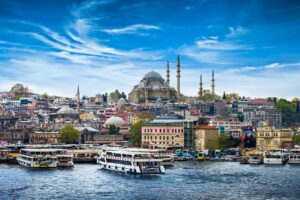
Plastic surgery in Turkiye: Speed of processing
But the price is not the only reason for the popularity of plastic surgery in Turkiye. The speed of the procedure is another factor, even if it is somehow a double-edged sword.
Weight loss surgeries, for example, are only supported by the NHS in extreme cases for people whose body mass index exceeds the threshold of 40, which means that they are severely obese.
And before the operation, patients must agree to a rigorous, long-term follow-up after surgery, which includes, in particular, the adoption of healthy lifestyles and regular medical checks. Even for eligible people, the wait for treatment can last for years. Patients are often eager for their procedure to be performed and are therefore tempted to make an appointment abroad. In Europe, some people have to wait more than six months for a crucial operation, while in Turkiye, the average time is two to four weeks.
Most Turkish clinics offer consultations by phone or video, so patients can be seen and make their decision without even having to travel abroad.
Plastic surgery in Turkiye: Social networks and medical tourism
Anyone who has mentioned on the internet that they are losing their hair, gaining weight, or disliking this or that aspect of their physique has probably been bombarded with Instagram or Google ads promising affordable and sometimes miraculous solutions to these problems.
The popularity of plastic surgery in Turkiye is partly explained by advertising on social networks.
This trend is compounded by media coverage of celebrities going public with their own operations.
Hair transplants are, for example, very popular among footballers, such as the English striker Wayne Rooney, who confirmed that he had resorted to them in 2011. The Emirati singer Hussain Al Jassmi explained his spectacular weight loss through gastric bypass surgery in 2010.
Social networks have an “undeniable influence” on people who are considering surgical improvements.
In a YouTube video viewed more than 300,000 times, Selena Marianova, creator of content on social networks and owner of a clinic based in the United Kingdom, tells her followers about her experience. The 22-year-old says she wants to help others by sharing information and chose Turkiye for her operation because of the country’s advanced medical technologies and experienced doctors. She went to Istanbul for plastic surgery in Turkiye (rhinoplasty) in 2019, warning, however, that young people need to gain self-confidence before making surgical improvements.

The link between social media use and a negative self-image is well established by research. Still, beyond ethical issues, it is clear that cosmetic surgery is a thriving business in Turkiye.
In 2018, the Turkish cosmetic enhancement industry was worth $2 billion, and hair transplants alone now represent a billion-dollar industry.
These figures have probably increased in the aftermath of the covid-19 pandemic, as a renewed interest in cosmetic surgery has manifested itself worldwide.


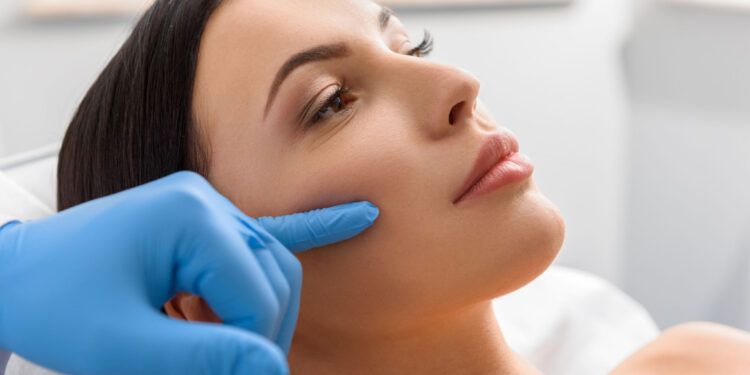
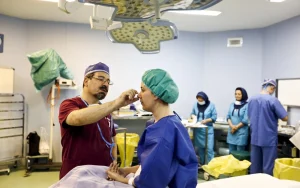




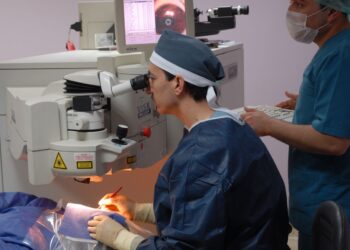





Discussion about this post